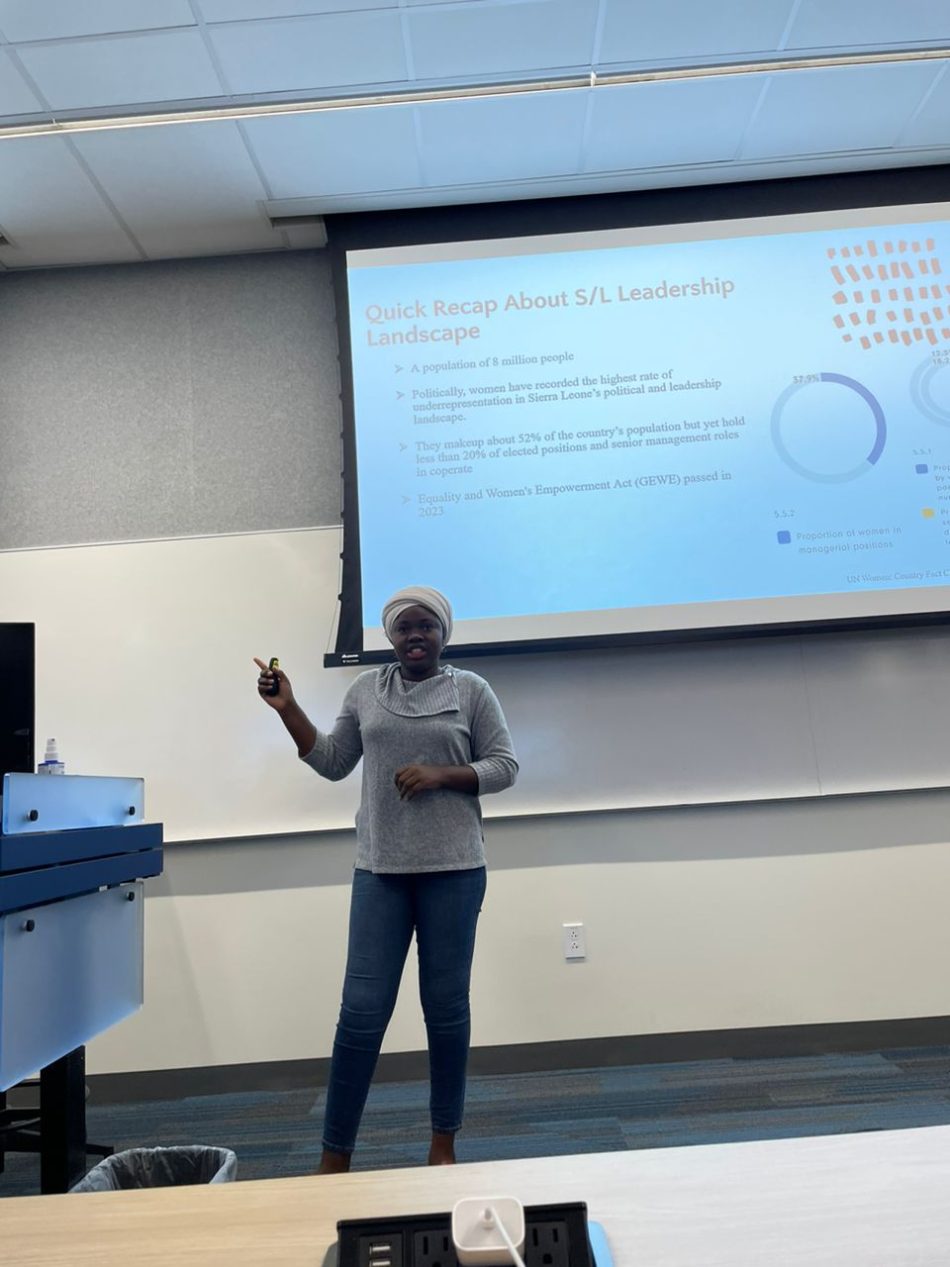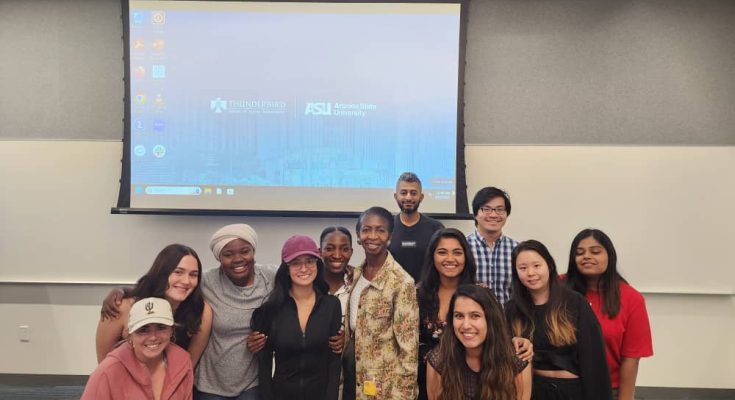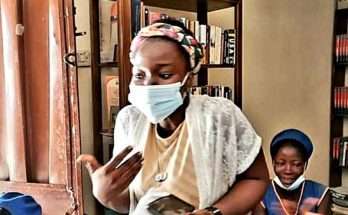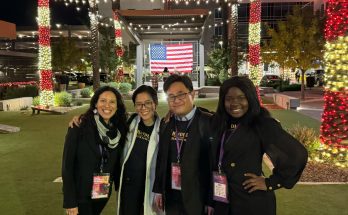As a Humphrey Fellow from Sierra Leone, I had the opportunity to participate in the “Women As Global Leaders” elective course at Thunderbird School, ASU. This experience has been truly transformative for me, and I wanted to share my journey with you. Thunderbird School of Global Management is the business school of ASU, and it is a world-renowned institution that has consistently topped the 2023 QS International Trade Rankings.
When I was searching for a course that aligned with my background as a journalist and gender advocate, finding one that focused on women’s empowerment was challenging. However, with the help of Julia, my fellowship curator, I was accepted into the “Women As Global Leaders” course at Thunderbird School. The course covered a variety of topics, including Force Field Analysis, Effective v. Successful Leaders, The State of Women in Leadership Around the Globe, Theories about Women and Leadership, Leadership Styles, The Glass Cliff, United Nations SDG 5: On Gender Equality, Systems Leadership, and Women Supporting Women. These topics provided a comprehensive understanding of the various dynamics in women’s leadership and highlighted the need for advocacy and change in this field.
The course also emphasized the importance of diversity and inclusivity in leadership styles for fostering innovation and adaptability in complex environments. The discussion shed light on the stark realities faced by women leaders worldwide. Learning about the disparities and challenges reinforced the urgency for advocacy and change in women’s leadership. We had the opportunity to analyze case studies from diverse countries on women’s leadership. We explored topics such as the challenges and successes of women in leadership positions, the representation of women in legislatures worldwide, and business cases for women in leadership roles. This diverse range of case studies allowed for a rich and multifaceted exploration of women’s leadership experiences and provided a platform for meaningful engagement and learning.

During my studies, I had to write a paper on the leadership journey of Madam Zainab Hawa Bangura, the Director-General of the United Nations Office in Nairobi. The project required me to choose a current female global leader and analyze the significance of her appointment and leadership style. Another assignment was to profile a country and write about its leadership landscape, which allowed me to adequately bring Sierra Leone into perspective. One memorable moment was during the discussion on “Women as Warriors.”
Hearing about historical figures’ indomitable spirit and leadership, like Mauritania’s Queen Dahia, the Sorceress (Jones 1997), and contemporary leaders like Hillary Clinton, was profoundly inspiring. It reinforced the notion that women have always played pivotal roles in shaping history.
This mode of learning contrasts with the educational system in Sierra Leone. The emphasis on critical thinking, open dialogue, and collaborative education departed from the more traditional, lecture-based approach back home. This course encouraged active engagement and allowed diverse voices to be heard and valued.
In conclusion, my experience in the “Women As Global Leaders” course at Thunderbird School has been life-changing. It has allowed me to gain new perspectives on women’s leadership and provided me with the tools to advocate for change in this field. I am grateful for this opportunity and highly recommend this course to anyone interested in women’s empowerment and leadership.




